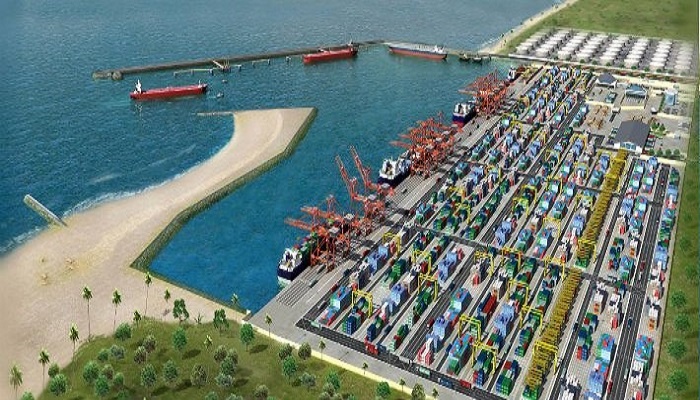(2 minutes read)
The Lekki Deep Seaport designated as Customs Port has the capacity to berth four times the size of vessels that are currently handled by other ports. It is hoped that such a large seaport, one of the largest in West Africa will reposition Nigeria as a regional hub globally for maritime business.
President Muhammadu Buhari inaugurated the Lekki Deep Sea Port located at Itoke village, Ibeju-Lekki, in Lagos State, on January 23rd. The Lekki Deep Seaport designated as Customs Port has the capacity to berth four times the size of vessels that are currently handled by other ports. It is hoped that such a large seaport, one of the largest in West Africa will reposition Nigeria as a regional hub globally for maritime business.
The Lekki Deep Sea Port is Nigeria’s first deep seaport with the most modern facilities. It has 13 quay cranes for a capacity of 2.5 million TEUs (Twenty-Foot Equivalent Units). It can operate vessels with a capacity of up to 15,000 TEUs.
The project, with an estimated investment of more than $1.5 billion, was completed in a record time of 45 months. The partners in the joint venture include the Nigerian Ports Authority (NPA), Lagos State Government, Tolarams Group (owners of the Lagos Free Zone), and China Harbour Engineering Company.
The Chinese Ambassador to Nigeria stated that the project, which is a joint venture between China, Nigeria, and Singapore, and run by a French company is a testimony of a successful business model of ‘five parties from four countries’.
Also Read:
https://trendsnafrica.com/nigerian-presidential-election-campaign-in-full-swing/
According to the Managing Director, NPA, Mohammed Bello-Koko, the Lekki Deep Sea Port would be the deepest and most modern port in Nigeria, with a depth of about 16.5 meters, capable of bringing in bigger vessels and more cargo. The project is expected to lower the cost of doing business in the country and also generate employment opportunities. According to reports, the Lekki deep seaport would inject almost $361 billion into the economy, and create 190,000 job opportunities for young Nigerians





